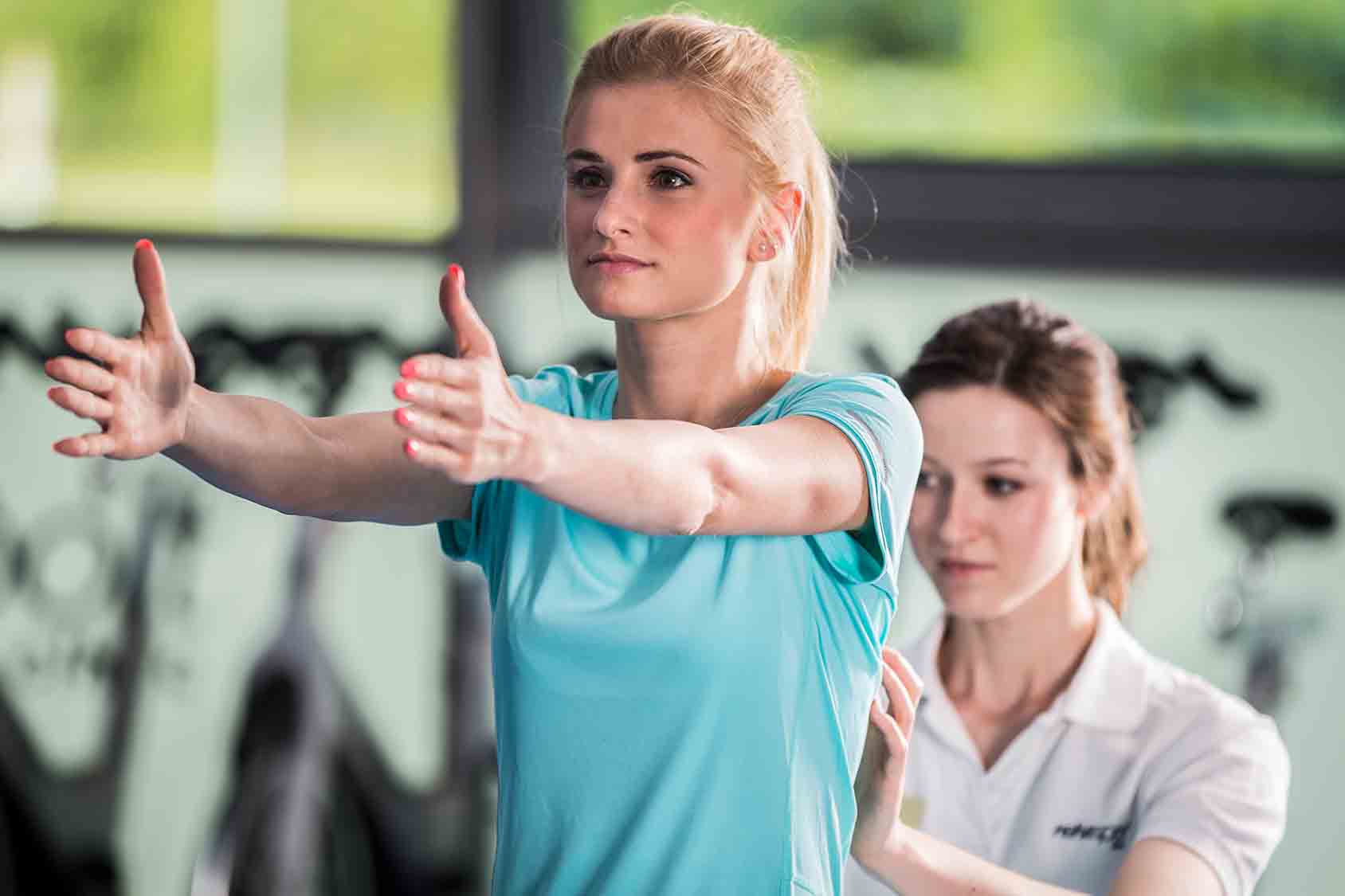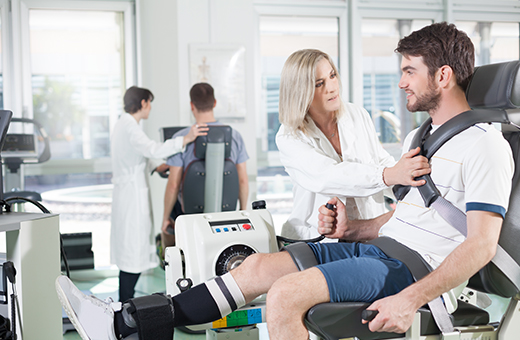What is physiotherapy?
Physiotherapy is the science of natural healing methods based on forms of physical energy in the human environment, including movement, thermal, kinetic, electrical, light and chemical stimuli. It is part of rehabilitation and consists of activities aimed at speeding up recovery and facilitating the patient's return to fitness and the ability to fulfil daily activities. As a scientific discipline, it has close links with bioethics and especially axiology, and draws information from the physical, behavioural and social sciences.
Physiotherapy today and in the future
After doctors and nurses, physiotherapists are the third most represented health profession. Due to the ageing process of highly civilised societies, physiotherapy in the long term can be called the "profession of the future". The training of a physiotherapist takes place, among other things, through a degree course which is linked to independent practice, using knowledge of the theory, practice and methodology of physiotherapy and functional diagnosis, as well as the ability to perform physical therapy, kinesitherapy, manual theory procedures and massage.
What is physiotherapy?
Through examinations and functional tests, the physiotherapist can choose the right measures and therapeutic methods, as well as control the effects of their work and verify and modify the entire treatment programme.
Physiotherapy also means treating abnormalities of the muscular, musculoskeletal, cardiovascular and respiratory systems. Patients very often seek help from a physiotherapist because of: fractures or joint injuries, craniocerebral or multi-organ trauma, osteoporosis or joint degeneration, chronic diseases, a history of stroke or spinal cord injury disorders, a history of heart attack, struggle with carpal tunnel syndrome or tennis elbow, have a damaged pelvic floor, lymphoedema, etc.
Professional physiotherapy care is a key point in the entire treatment and recovery process. At Rehasport, the great results of this process are the result of the cooperation between doctor, physiotherapist and patient. This is the philosophy behind the clinic - only through perfect interaction and understanding can satisfactory results be achieved.
Physiotherapy is also about rehabilitation methods that have been developed over the years and are used when working with patients. He, in turn, must feel safe and be aware that everything recommended by the Rehasport specialists leads to a specific end goal. Nearly 20 years of experience in patient care has enabled us to develop specialist rehabilitation programmes tailored to different types of injury.

The most important rehabilitation methods used in physiotherapy
Manual therapy - involves a detailed examination, diagnosis and manual treatment. This technique is used for injuries to joints, ligaments, muscles and capsular structures. Its elements include massage (transverse, functional), muscle stretching, joint mobilisation, manipulation and specialised exercises. Our physiotherapists use a range of advanced methods within manual therapy, among them: Kaltenborn Evienth, Cyriax, IAOM, Maitland, FDM (Fascial Dystorsion Model), soft tissue therapy, anti-edema therapy, therapeutic massage. The aim of the therapy is to reduce pain and improve the range of motion.
Kinesiology taping (kinesiotaping) - special plasters allow you to improve the function of a particular area of the body, relieve the pressure on tissues or activate structures.
Functional and therapeutic training, kinesitherapy - in the simplest terms: special exercises under the supervision of a physiotherapist, which are an essential and very important part of rehabilitation.
Physical therapy, especially currents and ultrasound - used to complement the rehabilitation process.
McKenzie - a method for treating and diagnosing back pain resulting from overloading. This technique focuses on a thorough history and precise determination of the causes of back pain.
PNF- is about restoring lost movement function.
Equipment used in physiotherapy
Physiotherapy is the science of treatment methods using natural means applied by man, but an important influence on the effectiveness of the whole process is supporting it with modern rehabilitation equipment. This allows the physiotherapist to measure the progress of their work objectively. Its operations are therefore supported by advanced equipment, including:
- system, which measures, among other things, muscle strength and endurance
- system, showing the ability to maintain balance.
- system, which checks the symmetry of ground pressure.
- antigravity treadmill
- system, allowing for comprehensive analysis of human performance
In addition, Rehasport physiotherapists perform an FMS examination - this is a series of tests showing a person's overall fitness and any problems with movement functions.

Rehabilitation after COVID-19
Physiotherapy can also help you recover from COVID-19. As the disease progresses, a significant number of patients may develop dysfunction of almost every system, although often the symptoms are unnoticeable. In addition to directly affecting the respiratory system, the SARS-CoV-2 virus can affect the cardiovascular system as well as the nervous system. This can secondarily lead to hypoxia or vascular thrombosis, kidney dysfunction, as well as muscle atrophy, joint stiffness and reduced physical performance.
In people who have been through the disease, the increased appearance of the above symptoms can cause feelings of significant deterioration in quality of life, as well as depression. Treating the long-term effects of COVID-19 requires a lot of effort from the patient and a specialised team consisting of: a doctor, physiotherapist, nutritionist and psychologist.









